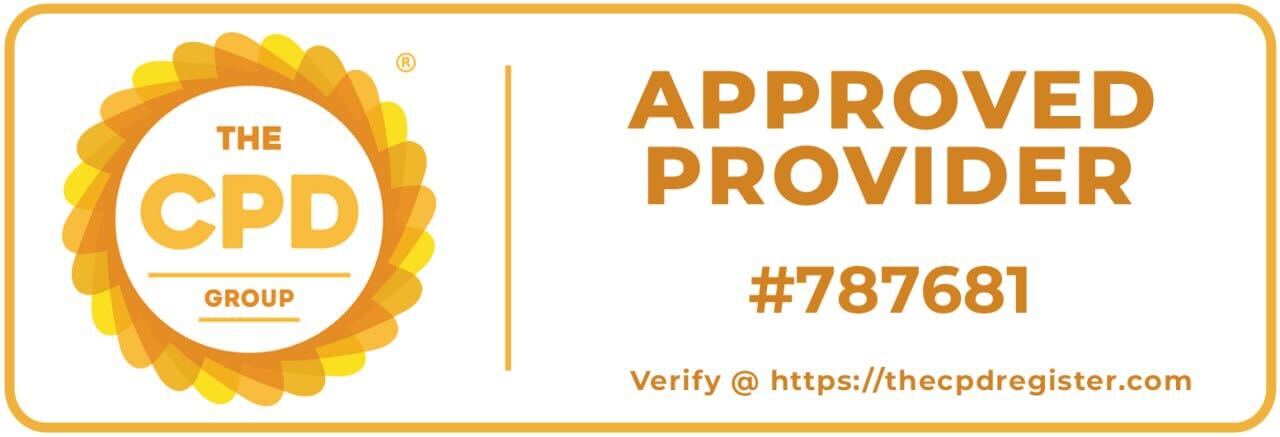The Only Course to get you Hired as a Crypto CFO


Our Academy Alumni are from













Meet our Instructors

Rohit Goel is the Treasurer of Protocol Labs, the organization behind Filecoin and IPFS, where he leads treasury strategy and capital management for one of the most prominent ecosystems in decentralized infrastructure.
He is a CFA Charterholder with over 15 years of experience across corporate finance and treasury leadership roles at global technology companies, including Uber and Zendesk.

Christophe is the CEO and Co-Founder of Request Finance, an application for crypto invoicing, payroll, and expenses. Previously he built Moneytis (cross-border currency transfers with Bitcoin), & is the President of the Request Network Foundation, a payment request protocol.
Jack Gale is the Director of Staworth, a web3-native professional services firm that helps traditional finance transition onchain. Staworth supports organizations with everything from asset management to financial reporting. Jack has also contributed his expertise to leading DAOs including kpk, Gnosis, and Beefy.
Mackenzie Thota is a CPA and the CEO/Co-Founder of Hash Basis, a crypto-native accounting firm. She started Hash Basis to share crypto accounting & tax expertise with the blockchain industry.
She also does the accounting for dOrg, the first DAO to be incorporated as an LLC in the United States.
She also does the accounting for dOrg, the first DAO to be incorporated as an LLC in the United States.

Jonathan Turnham is a Partner at NXT Law and legal advisor to Web3 firms. He has pioneered decentralized structures and advised top blockchain projects through their full lifecycle, including major equity and token raises. With expertise spanning videogames, metaverse, L1/L2 infrastructure, DeFi, CeFi and NFTs, he helps structure global businesses across the Web3 ecosystem.

Bassil Eid
Co-Founder of Breezing & Managing Partner at Detof
Module - Accounting for On-Chain Transactions
Cameron Browne is the Co-Founder of Darien Advisors , a web3 accounting, tax & advisory practice based in the US. They primarily work with founders, investors, start-ups, DAOs, and nonprofits on matters ranging from tax compliance, strategy, onchain accounting, and TGE.

Max Kalyuzhnyi is the Head of Finance at Makina, a DeFi execution platform for institutions. He was the former Head of Ops at Everclear Foundation, a cross-chain clearing and settlement protocol.
Max is an ACCA-qualified finance professional with deep experience at the intersection of traditional finance, DeFi operations, and on-chain financial infrastructure.
Max is an ACCA-qualified finance professional with deep experience at the intersection of traditional finance, DeFi operations, and on-chain financial infrastructure.

Umar, a Chartered Accountant and previous External Auditor at Deloitte & BDO, is the creator of The Accountant Quits.
By educating accountants about crypto accounting, Umar aims to help accountants upskill themselves for new career opportunities in web3.
Nik specializes in sustainable Tokenomics Design, Web3 Treasury Management and shaping novel DeFi Products. He is currently managing treasury & tokenomics for multiple protocols and previously built the treasury department at Bitstamp. He co-founded Elixir Protocol and Kover Finance, and has been working with some of the leaders in the industry, such as Bitstamp, Hacken, and Sweat Economy.
Apply Now

Why Enrol in This Course
Get Confident Using Block Explorers on Different Chains
Save months of frustration learning how to use block explorers on EVM chains, Solana, and Cosmos.
Downloadable Guides and Templates
Designed for real-world solutions in order to gain a competitive edge in the job market.
Access to Crypto Accounting Tools
Hands-on experience using the most widely used tools on self-custodial wallets, invoicing, and crypto accounting.



Modules
Week 1: Block Explorers
- Describe the purpose and features of block explorers
- Differentiate between accrual and cash basis accounting for on-chain transactions
- Reconcile on-chain transaction data using block explorer tools
- Identify alternative on-chain data sources
- Apply best practices and implement practical tips
Week 2: Accounting for OnChain Transactions Part I
- How to set up a balance sheet in Xero and Quickbooks.
- Connect Xero and Quickbooks to a crypto subledger tool
- Pros & cons of using token vs wallet account to book journal entries
- Pull in crypto transactions and verify balances
- Book 4 transactions types (send, receive, swap & internal) into Xero and Quickbooks
Week 3: Accounting for On-Chain Transactions Part II
- Identify and classify data sources
- Document token flows through detailed walkthroughs
- Apply best practices when designing a chart of accounts
- Understand the accounting treatment for various transaction events (bridging, staking, lending, airdrops)
Week 4: Wallets & Custody
- Differentiate between hardware and software wallets
- Compare custodial and non-custodial wallets
- Evaluate the use of wallets in business - Multisig v/s MPC
- Design and implement multisig policies
Week 5 - Cryptocurrency in Business
- Establish payment processes and internal controls
- Manage token compensation, including designing vesting schedules and lockups
- Analyze tokenomics and implement strategies for native token management
- Develop web3 liquidity management practices & assess risk management strategies
Week 6 - Web3 Company Formation
- Develop a framework for selecting jurisdictions for web3 startups and DAOs
- Analyze the use of token SPVs
- Identify and evaluate the best jurisdictions for incorporation in the web3 space
Week 6: Tax treatments
- Determine the character of crypto income as capital gains or ordinary income.
- Perform a deep dive into calculating cost basis
- Analyze tax implications for DeFi activities
- Assess NFT-specific tax obligations
Week 7: Accounting Standards and Audit
- Compare IFRS & US GAAP accounting treatments
- Assess methodologies for valuation of crypto
- Identify auditing considerations - completeness, accuracy, valuation
- Develop financial statement disclosures
Academy Alumni




.webp)



















Testimonials


Features



Level up to CFO-Level Crypto Accountant
Save yourself months of frustration learning crypto accounting by yourself, and let industry experts help you become a confident crypto accountant!
We invite you to join our crypto accountant academy, the only place that gives you practical insights on crypto-accounting that will help you land the CFO role for a Web3 firm you dreamed of!
$2,000
(Fiat or Crypto accepted)
FAQs
What is Crypto Accounting Academy?
The Accountant Quits ‘Crypto Accounting Academy’ is the first comprehensive course and certification program to help accountants learn crypto accounting.
It’s composed of 7 modules to provide you with the foundation of having the practical knowledge to run the operations and bookkeeping transactions on the blockchain.
After completing every module, you can take an exam and earn a NFT-based certificate to build up your crypto accounting track record.
Who is the Crypto Accounting Academy for?
The course is for accountants curious to learn how to run a business using cryptocurrencies, and how to account for them in their financials.
This course does not cover the basics of Bitcoin, Ethereum, and Cryptography, as there are many other courses available on these topics.
Upon completing the course, you will confidently manage your company's or client's business using crypto.
Upon completing the course, you will confidently manage your company's or client's business using crypto.
What’s the Prerequisite Accounting Knowledge in Order to Enrol?
The Crypto Accounting Academy is designed as a basic level course that provides practical knowledge on how to manage a business using crypto.
An accounting degree or certification is not a prerequisite for this course. While a basic understanding of accounting principles is recommended, no advanced preparation is required.
The course includes one module that explores the relevant IFRS and US GAAP accounting standards for crypto assets, but the content remains accessible to learners without prior expertise in accounting.
Our course materials are revised or reviewed at least every 2 years.
The course includes one module that explores the relevant IFRS and US GAAP accounting standards for crypto assets, but the content remains accessible to learners without prior expertise in accounting.
Our course materials are revised or reviewed at least every 2 years.
Does the Crypto Accounting Academy have an official certification?
No, the course does not have official accreditation by any specific accrediting body or institution.
We believe that the value of our course lies in the quality of the content and the expertise of our instructors, rather than formal accreditation.
Will I receive a certification upon completion of the course?
Yes, once you complete all the course chapters and pass the quizzes, you will receive a certificate. You can then add the certificate to your resume or LinkedIn profile, helping you stand out as a crypto accounting specialist.
How do I apply to join the Crypto Accounting Academy?
- Fill in the application form
- You will then be invited for a 15mins onboarding call to assess whether the course is right for you, and answer any questions you may have
Will I have the chance to interact with instructors?
Yes, absolutely! We encourage active student-instructor interaction as part of the learning experience. Students will have the opportunity to engage with our instructors through live Q&A sessions.
How and when will the online classes be held?
The course is 'Group Internet Based' and are taught live online.
In order to accommodate students globally on different time zones, the classes will be held every Thursday at 20:00 GMT or 16:00 ET.
In order to accommodate students globally on different time zones, the classes will be held every Thursday at 20:00 GMT or 16:00 ET.
In case you have missed a live class, we record every classes and make it available for you to replay at your convenience. However, please note that a CPE credit cannot be earned if the student did not attend the online session.
What types of payments are accepted?
We accept all standard credit and debit card options including Visa, MasterCard, American Express, as well as other payment methods that may be enabled on the website.
Is there a refund policy?
There is a 100% Money-Back Guarantee if requested any time before the second class.
If you do not like the course, we’ll refund you 100% of the price. No questions asked.
For all complaints and refunds, please send an email to hello@theaccountantquits.com
For all complaints and refunds, please send an email to hello@theaccountantquits.com
Is the Crypto Accounting Academy CPE accredited?
Build On Story LLC is registered with the National Association of State Boards of Accountancy (NASBA) as a sponsor of continuing professional education on the National Registry of CPE Sponsors. State boards of accountancy have final authority on the acceptance of individual courses for CPE credit. Complaints regarding registered sponsors may be submitted to the National Registry of CPE Sponsors through its website: www.nasbaregistry.org
The field on study falls under 'Specialized Knowledge'.
The field on study falls under 'Specialized Knowledge'.
How many CPE credits will I receive upon course completion?
Students will receive 20.4 CPE credits. In order to be awarded the full CPE credits, the student must have attended the Group Live session in full for all classes and earn the course completion certificate.






















.webp)
.webp)
.webp)
.webp)







